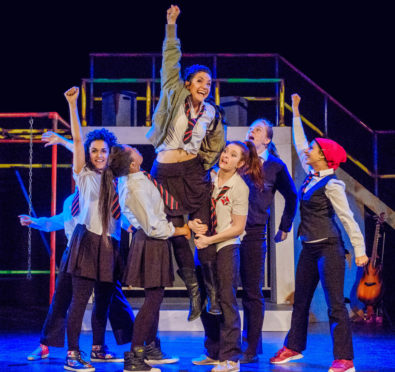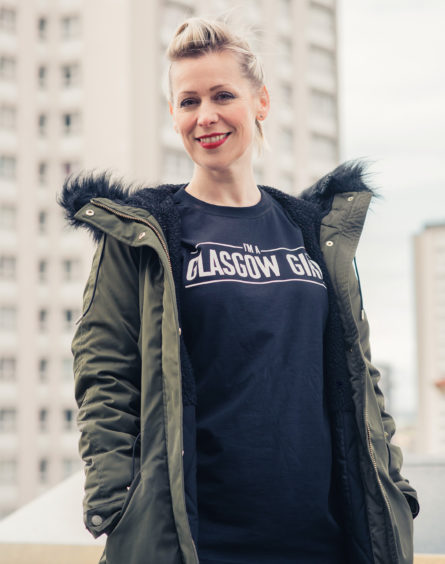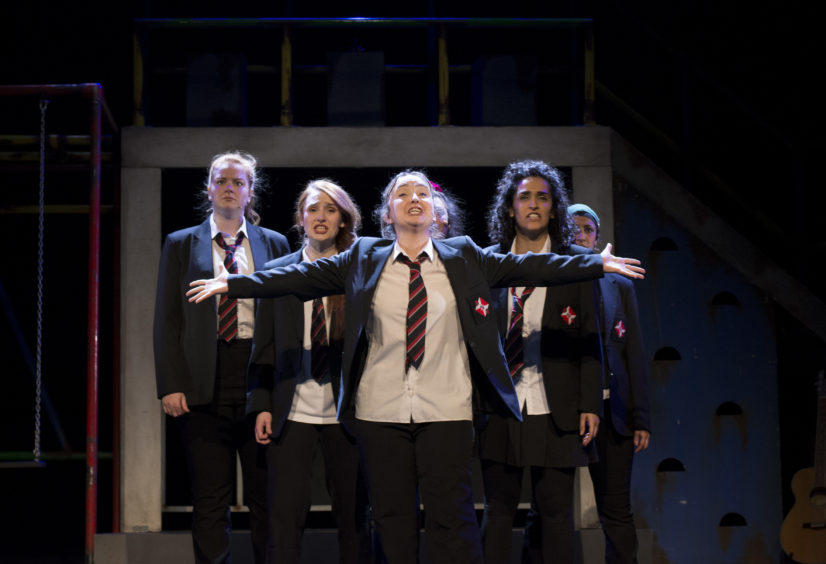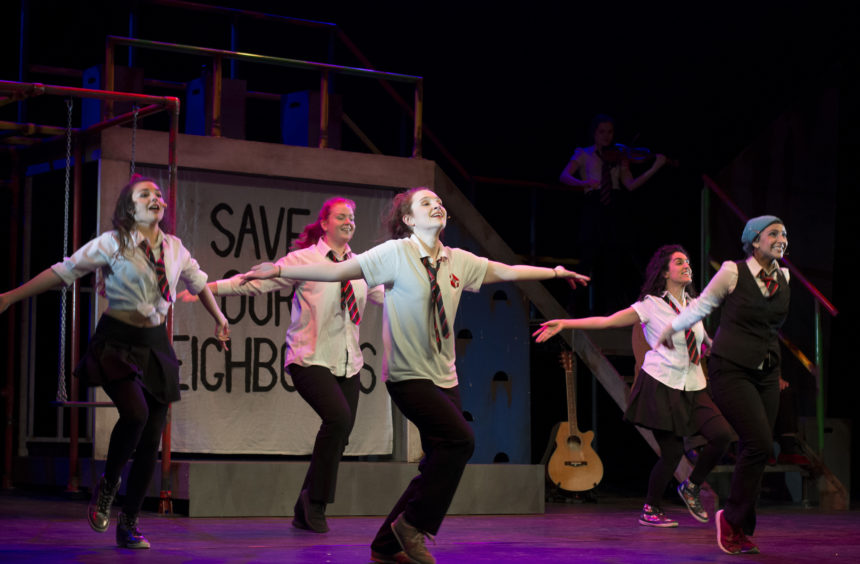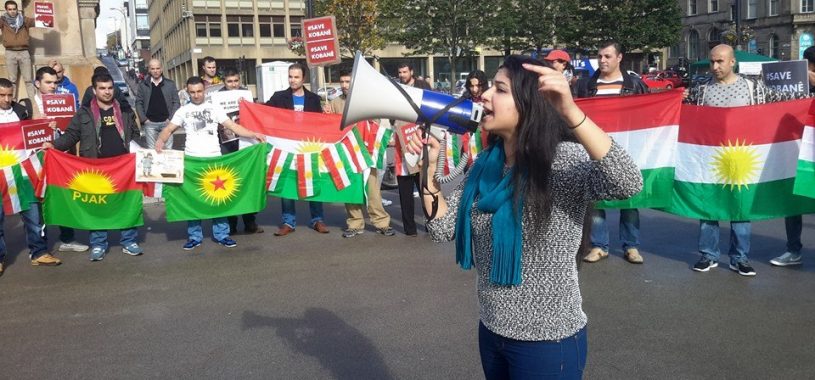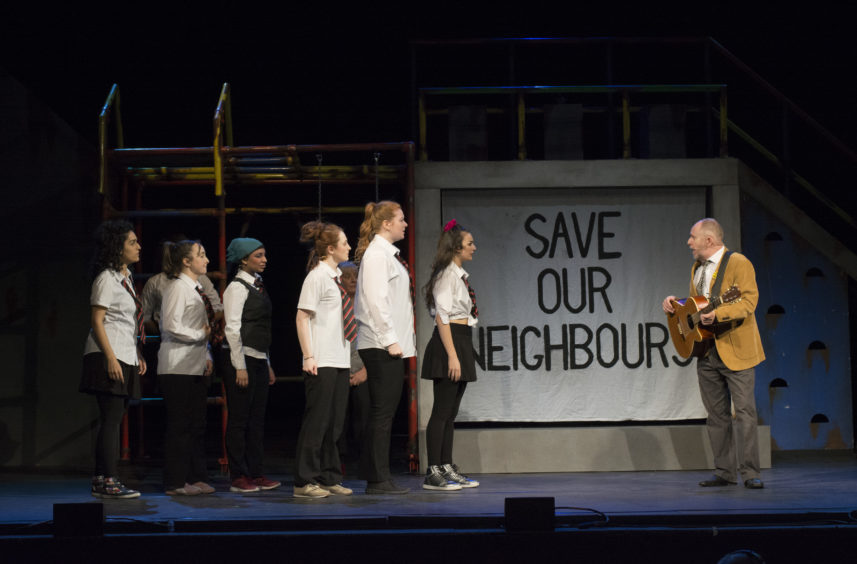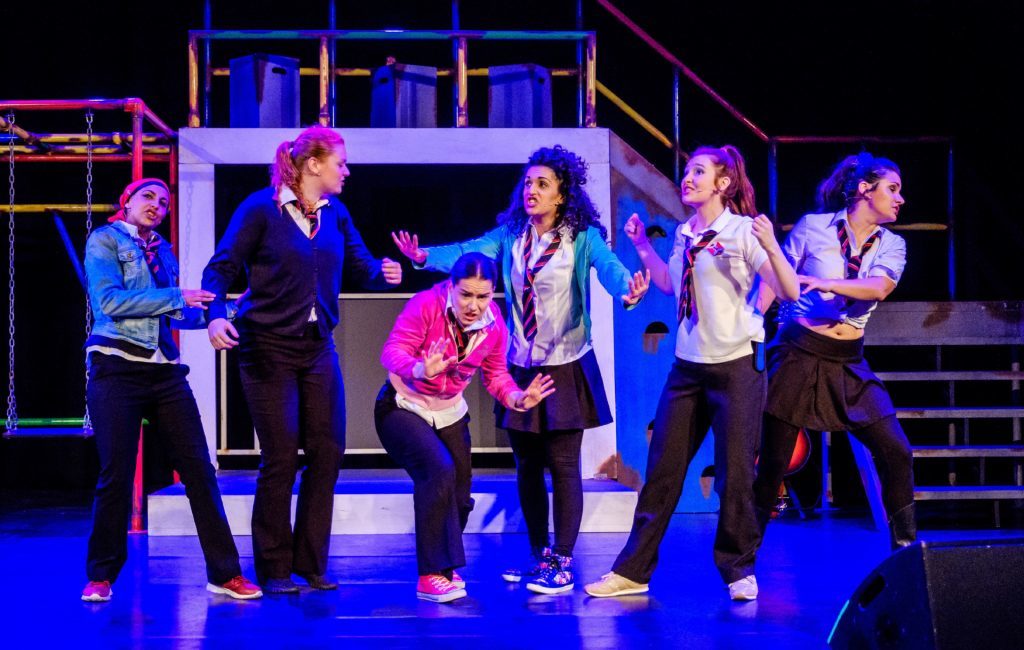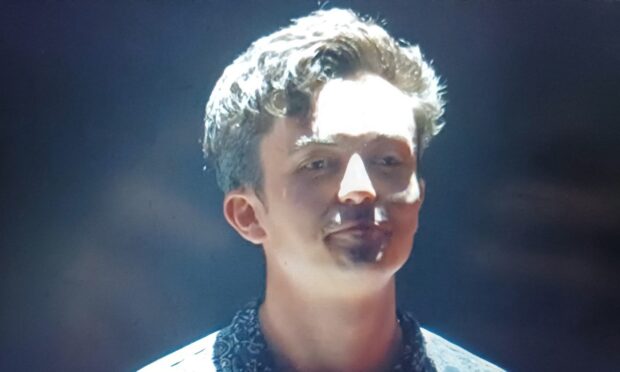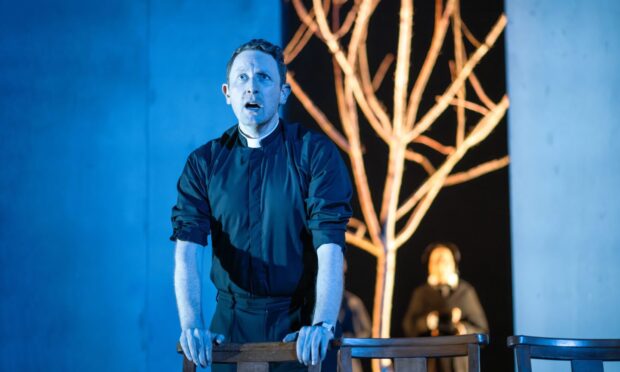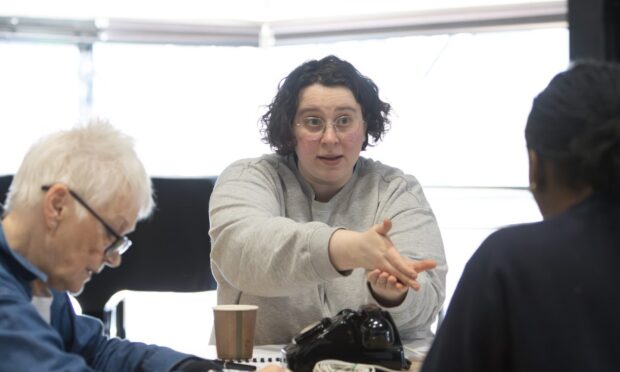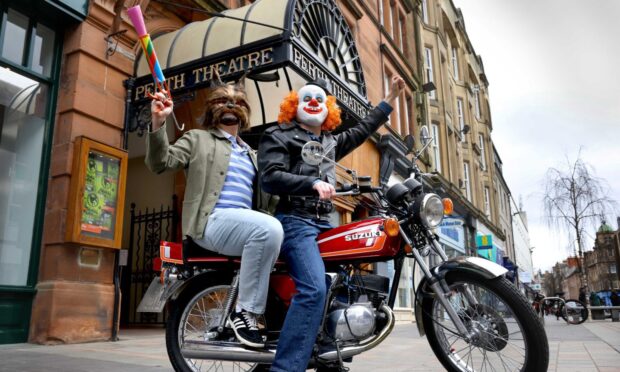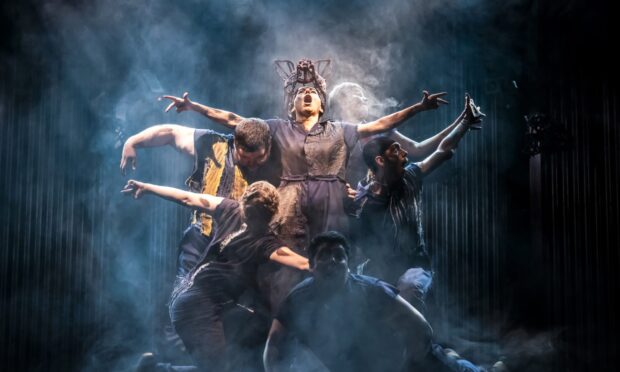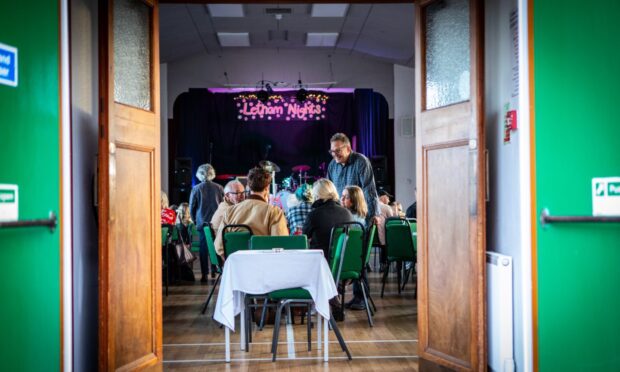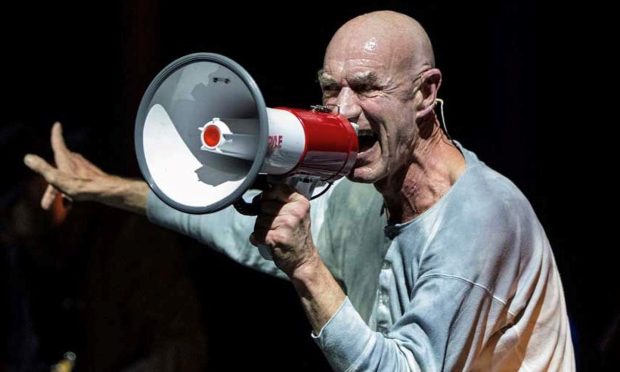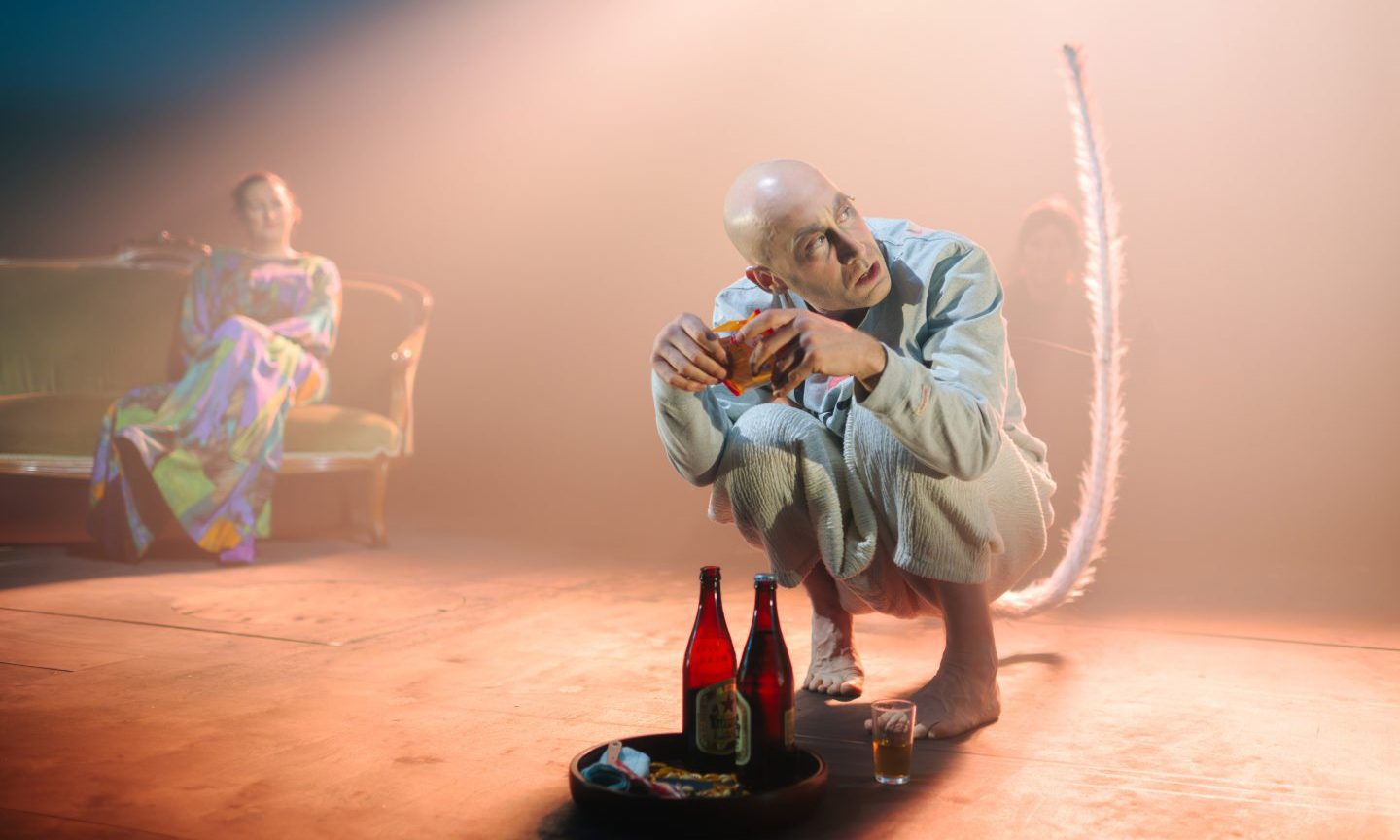Ahead of its run at Perth Theatre from January 30 to February 3, Michael Alexander speaks to Fife-raised Cora Bissett – the director of life-affirming musical drama Glasgow Girls which is based on the true story of seven teenagers fighting to prevent the deportation of an asylum-seeking family – and also to real-life Glasgow Girl and former asylum seeker Roza Salih.
When Glenrothes-raised theatre director Cora Bissett was drawn to the story of the Glasgow Girls in 2010, she had no idea that the issue of refugees and asylum seekers would transpire to become the most urgent and prescient question of our times.
Based on the true story of seven teenagers from Drumchapel, whose lives changed forever in 2005 when their school friend and her asylum-seeking family were forcibly taken from their home to be deported, the self-titled ‘Glasgow Girls’ took a stand to fight for her rights, and ultimately the rights of all children of asylum seekers.
They inspired a whole community to unite behind its residents, and later in 2010, inspired Cora to turn their story into a musical with the award-winning show going on to play across the UK to sold out audiences.
Now, as the Glasgow Girls arrive at Perth Theatre as part of a new UK tour, Cora told The Courier she is “saddened” that issues of migration continue being so prevalent – and that western governments often have a huge impact on the various wars that ultimately displace hundreds of thousands of innocent people from their homes.
“The great wide issue of migration – of the rights of people to move in and out of countries and who holds those rights and who decides on those borders – is THE burning question and battleground of our modern world,” said Cora during a break from rehearsals at the Platform arts centre in Easterhouse.
“It’s just incredible how complex the issue is, but also how overly complex people make it.
“Everyone in the world is just trying to find a place of safety. That’s all anybody really wants.
“I think what people forget when they are hit with the hyperbole and this idea that anyone is blessed with this God-given right to be a protected people, is that it’s just nuts.
“Every human being on the planet has the right to seek asylum if they are fleeing from war, from danger, from persecution.
“People have that legal right and also they are usually fleeing from wars that our government has had a part in creating. So it’s our fault! I just think there’s so much ignorance around the whole issue.”
Working with her new independent theatre production company Raw Material, Cora said it had been a “joy” to re-unite the 2016 cast.
There had been a “lot of wheeling and dealing in the background” to pull the show together again, which brings “compassion” to the heart of such global crises.
However, the demand for the show was still there, and she is delighted to have been able to keep in touch with the real life ‘Glasgow Girls’ – including Roza Salih – who gave it her blessing.
Roza arrived in Scotland in 2001 to seek asylum. Her family had fled Kurdistan in Northern Iraq after her grandfather and two uncles had been executed for opposing Saddam Hussein.
In 2005, at the age of 15, she co-founded the real-life Glasgow Girls with fellow pupils from Drumchapel High School.
The Glasgow Girls campaigned to stop the UK Border Agency carrying out dawn raids and detaining and then deporting children, successfully preventing the deportation of their school friend, Agnesa Murselaj, a Roma from Kosovo.
Roza, who is the co-founder of Scottish Solidarity with Kurdistan, graduated in law and
politics from Strathclyde University and today the now 29-year-old is office
manager for Glasgow South West SNP MP Chris Stephens.
She told The Courier the Glasgow Girls production has been “inspiring” for many people coming together to fight for what they believe in.
But she also said there continued to be a lot of ignorance around asylum seekers and the reasons why they flee their own countries. Education was the key, she said, and the show had an important role to play in helping more people understand the issues.
“At the time we were in school, we faced detention and immigration officials coming to your door to detain you,” said Roza.
“That was a scary thing. And children being detained. Now of course it’s illegal for the UK government to detain children. That’s a huge change for the UK by law.
“But asylum seekers still face a lot of barriers. At the moment, asylum seekers are not allowed to work in this country.
“The UK government is the only country in Europe that doesn’t allow that.
“You look at Scandinavian countries, asylum seekers contribute to the economy and they are allowed to work: they have their dignity, they have a purpose in life which has basically been taken away from them.
“You see and hear about asylum seekers getting £35 per week and they have to live on that and survive on that money. Anyone on that money will be struggling to cope.
“But changes come through people – people believing they can make a difference. That’s what we did – the seven of us came together – and of course with other people. That’s how further change will happen in future.
“I believe anyone (male or female )who wants to tell a story that is true and to fight for justice – whatever the subject – is a Glasgow Girl.”
